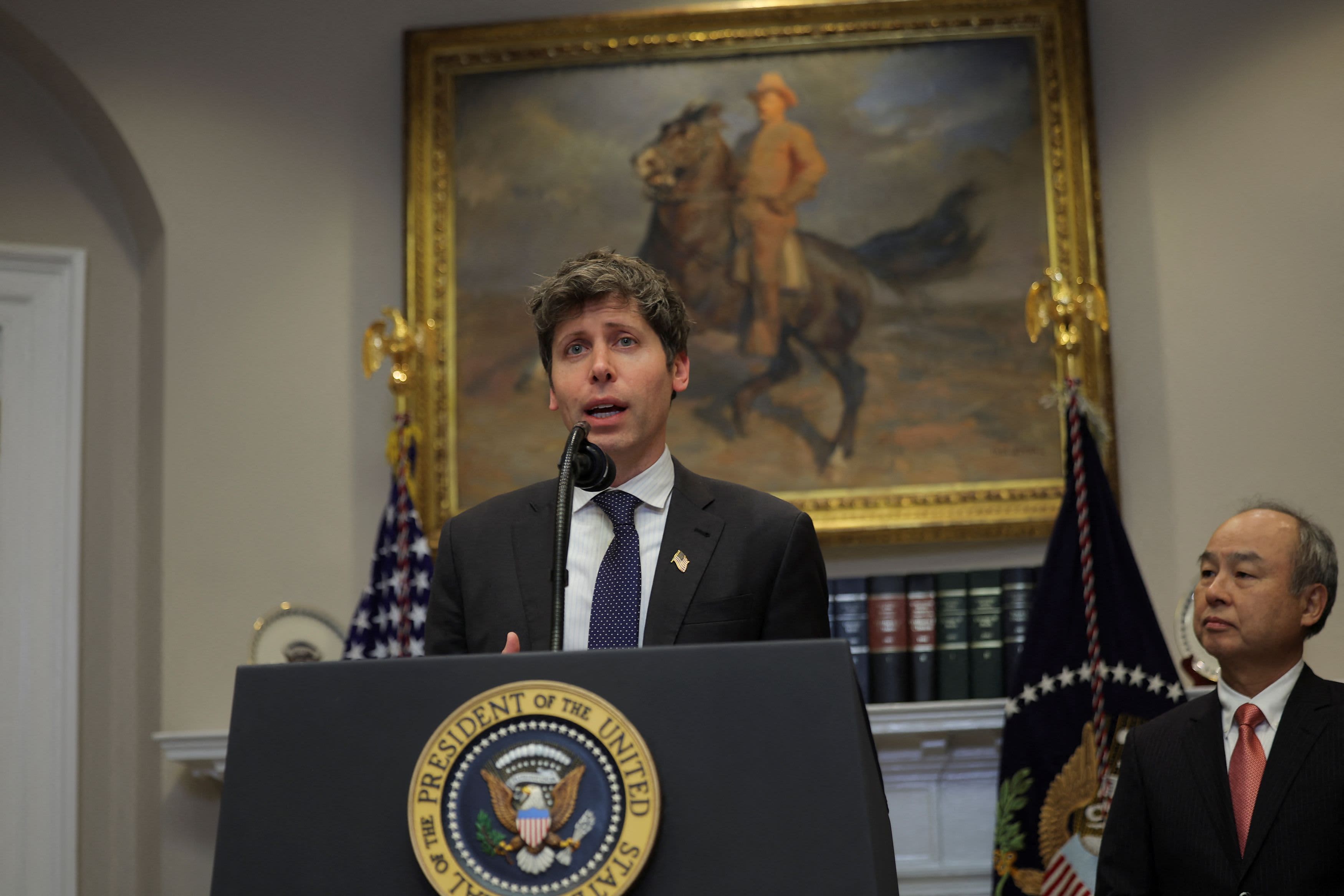The fraught US election race between incumbent vice-president Kamala Harris and former president Donald Trump is too close to call.
Typically, investors can look beyond the fierce politicking, but in this case the candidates have sharply divergent plans that could have severe fallout whoever wins.
Given the US's superpower status that won't be just on the domestic front.
Trump wants to end the war in Ukraine but start a global trade war. Harris intends to hike corporate taxes, creating a huge potential hit to the earnings of Wall Street giants that sit in almost all portfolios.

We asked top investing experts to give their takes on the potential impact of a victory either way, especially in key sectors like technology, defence and energy.
They also offer tips on how best to seize new investing opportunities, or protect your capital.
What you need to know about the US election
The big day is 5 November, but early voting has already begun and new Democrat standardbearer Kamala Harris and three-time Republican nominee Donald Trump are basically tied in opinion polls.
'Much of the campaigning has focused on personalities, "cultural war" issues, border control and the cost-of-living crisis, rather than setting out detailed, coherent economic programmes,' says Jason Hollands, managing director at Bestinvest.
'Observing the election from the UK, attention is firmly fixed on who might win the keys to the Oval office – maverick Republican Donald Trump, or current Democrat vice-president Kamala Harris.'
But Hollands says investors should note that the US system of government differs significantly from our own, because the ability to implement policy also depends on who controls the two houses of Congress, the Senate and the House of Representatives.
At present Democrats hold the Senate by one casting vote and Republicans have a small majority in the House, but either could flip and so the range of outcomes is more complex than whether Trump or Harris wins, according to Hollands.
Meanwhile, the US states have power to set some local taxes and laws, while the powerful Federal Reserve makes decisions on interest rates and injecting liquidity into the financial system, he says.
'From an investment perspective, decisions by the Fed are arguably more significant than the economic policies enacted by the administration as they have global ramifications on liquidity and the strength of the dollar which is the most used currency in international trade.
'While the Fed is independent, the president does however get to appoint the chair. Donald Trump has been notably vocal in disagreeing with some of the Fed’s decisions and so is seen as challenging that independence.'
Darius McDermott, managing director of FundCalibre, says: 'It would be ill-advised for investors to not have at least half an eye on the election results this year.
'While drastic policy shifts are unlikely regardless of who wins - since this is not a battle between opposing economic ideologies - there are important sector-specific implications to consider.'
He says a Republican victory could bring lower corporate taxes and relaxed antitrust regulations, while the Democrats have proposed taxing unrealised capital gains and floated the idea of increasing the tax on share buybacks, currently set at 1 per cent.
The past is not a guide to the future, but below is how US business sectors performed under current president Joe Biden from 2021 to do date and former president Donald Trump from 2017 to 2021. The latter's term in office is split into pre and post-pandemic periods.
Then, we take a look at the current candidates' plans and their potential impact.
How did US sectors fare under Republican Donald Trump and Democrat Joe Biden?

What if... incumbent vice-president Kamala Harris wins
Jason Hollands of Bestinvest rounds up her notable policies.
- Commitment to the 'green' agenda, favourable for the renewable energy sector
- A more aggressive approach on anti-trust regulations, meaning competition policy
- An 'opportunity economy', including expanding child tax credits and assistance to first-time buyers
- Building three million homes with a focus on affordable housing, favourable for housebuilders
- Raising the corporate tax rate from 21 per cent to 28 per cent - estimated by Goldman Sachs as likely to lower the earnings per share of the S&P 500 by about 8 per cent
- Raising capital gains tax and the top tax rate for higher earners
- Tariffs dubbed a 'sales tax' which puts up prices of goods for Americans
- Implied lower budget deficits versus Trump, which is more supportive of long-term US government bonds

- Increase in tax on share buybacks from 1 per cent to 4 per cent
- Likely continued support for Ukraine, so aerospace and defence stocks might rally.
What if... former President Donald Trump wins again
Jason Hollands of Bestinvest runs down his main policies.
- Tax cuts, including a reduction in corporate tax from 21 per cent to 20 per cent but a deeper cut to 15 per cent where products are made in the US
- Extension of personal tax cuts, which he introduced and are due to expire at the end of 2025
- Deregulation, as seen in his first administration
- A return to 'trade wars' with a universal 10 per cent tariff on imports, and 60 per cent on Chinese imports
- Supporting domestic production, which means encouraging re-shoring of manufacturing jobs and penalising companies that move production abroad, with negative repercussions for emerging markets
- Climate change scepticism, reining back on green agenda
- Support for energy independence, which means encouraging US oil and gas production
- Pro-domestic growth due to less regulation and tax cuts, but inflationary pressures given tariffs on imports would drive up the cost of goods
- Deficit would continue to balloon, a headwind for long-dated US bonds
- Criticism of US financial support for the war effort in Ukraine, and wants swift end to the conflict.
US investment ideas: Index funds, small and mid caps, tech, energy and more
Index funds
'If you are bullish on US equities and believe a Trump win will spur another leg up for the market, then the simplest way to capture this is by buying a low cost index fund,' says Hollands, who tips one below.
But he adds: 'Owning an S&P 500 index fund will mean have significant exposure to the Big Tech stocks that are facing increased scrutiny under anti-trust regulations, especially should the Democrats win, and where valuations have become quite frothy.'
He therefore also tips a more defensive ETF, which owns the largest one thousand companies but weights them not on market capitalisation but four fundamental factors.
These are sales and cash flow (five-year averages), book value (at review date) and average total dividends (over five years).
Jason tips:
SPDR S&P 500 UCITS ETF (Ongoing charge: 0.03 per cent)
FTSE RAFI US 1000 UCITS ETF (Ongoing charge: 0.39 per cent)
Quality companies
If you want a high conviction portfolio of quality companies with strong competitive advantages, Hollands recommends the fund below.
He says it is an active and very flexible fund, invested in 28 companies at present, and because it has no sector constraints it varies considerably from the index.
'The managers do not shy away from making significant calls which means relatively high turnover. For example, the managers significantly reduced tech exposure in May 2023. They have subsequently increased tech exposure again.
'It is important to say that although the managers run a concentrated portfolio, they are very focused on downside protection and the track record scores well on most risk metrics.'
Jason tips:
GQG Partners US Equity (Ongoing charge: 0.45 per cent)
Small and mid caps
'Trump's "America First" approach and potential tariffs, especially on Chinese goods, may create advantages for US-based small and mid-cap companies, says Darius McDermott of Fundcalibre.

'This protectionist stance could shield them from international competition and potentially boost their market share.'
He adds that small cap stocks tend to outperform in a falling interest rate environment.
Hollands also has a fund tip with exposure to small and midsize companies that could capture potential upside from the focus on domestic growth.
Darius tips:
Artemis US Smaller Companies (Ongoing charge: 0.75 per cent)
T. Rowe Price US Smaller Companies Equity (Ongoing charge: 0.96 per cent)
Jason tips:
Premier Miton US Opportunities (Ongoing charge: 0.68 per cent)
Technology
'Harris has long-standing relationships with Silicon Valley and has received growing support from a group representing hundreds of prominent venture capitalists, including LinkedIn founder Reid Hoffman,' says James Igoe, head of the Manchester office at Redmayne Bentley.
'Given her relationship with the sector and the region as former attorney general for California, it would be surprising if Harris did not provide support to the sector during her time as president.'
However, McDermott notes that Silicon Valley seems to have shifted in favour of Trump.
'One of the clearest examples of this is Elon Musk, who was once politically neutral but has since emerged as a vocal Trump and anti-Harris supporter.
'It's not just Musk — many Silicon Valley figures who were once anti-Trump have now thrown their full weight behind him.'
McDermott puts this down to Trump's stance on lower corporate taxes and reduced regulations, and the Democrats' proposals on capital gains and share buybacks.

'Additionally, Trump’s running mate, JD Vance, is a former venture capitalist from San Francisco, which may strengthen the ticket’s appeal to the tech sector,' he says.
Meanwhile, Hollands notes: 'Both the Republicans and Democrats have concerns about the power of Big Tech, with the Republicans focused on perceived political bias and free speech, and the Democrats on the issue of anti-competitiveness.'
James tips:
Liontrust Global Technology (Ongoing charge: 0.87 per cent)
Darius tips:
Sanlam Global Artificial Intelligence (Ongoing charge: 0.60 per cent)
AXA Framlington American Growth (Ongoing charge: 0.80 per cent)
Energy
'Energy would be a key policy priority of either administration, including bipartisan agreement on the need for permitting reform to build energy infrastructure,' says Igoe.
'A Harris presidency may see a continuation of current energy policies, including support for clean energy, which would be a tailwind over time for that sector.'
Igoe suggests Republicans after a Trump win would look to boost energy production, which would help natural resource companies.
McDermott agrees there could be a boost for oil and gas stocks if Trump regains office.
But he says energy stocks are heavily tied to broader economic factors, with the sector outperforming during Biden’s presidency due to rising geopolitical tensions.
James tips:
Pictet Water (Ongoing charge: 1.01 per cent)
Defence
'A renewed Trump administration is expected to push for increased military spending, both domestically and by pressuring NATO allies to meet or exceed their 2 per cent GDP defence spending commitments,' says McDermott.
'This focus on bolstering military capabilities, coupled with growing global security concerns, could create a strong tailwind for defence companies.'
He notes that Republican vice-presidential candidate JD Vance is an arch-isolationist, which has caused growing concern in Europe and forced nations to significantly increase their own defence spending.
McDermott says investors are already eyeing this sector, and though some are still hesitant due to ESG {environment, social and governance) considerations, more are recognising the importance of security and defence in today's geopolitical climate.
'This shift could lead to broader investment in defence stocks, potentially making them an attractive option in a Trump-led global economy.'
Igoe says: 'Harris has proposed an $849billion defence budget for 2025, representing a 4.1 per cent increase from 2023.
'As president, Trump signed the largest Pentagon budget in history - $700billion - a 15 per cent increase at the time from the previous year.'
He adds that both Trump and Harris are likely to pursue additional export controls, especially regarding advanced technology, on national security grounds.
Health
'A Harris win could change the healthcare landscape, with expanded Medicare or drug price caps, which would feed into profitability for healthcare companies,' says Igoe.
But McDermott says neither party has proposed significant overhauls as in previous elections, though he does reckon major pharmaceutical companies could benefit from Trump’s push for greater pricing freedom.
James tips:
JP Morgan Global Healthcare (Ongoing charge: 1.00 per cent)
Green tech and infrastructure
Should the Democrats win, you might want to look at a sustainable fund on the basis of the US going full steam ahead with the green agenda, points out Hollands.
McDermott also believes a Democratic win could lead to increased spending on renewable energy and green technology, and tips a green energy infrastructure fund which could prosper in this scenario.
Jason tips:
Brown Advisory US Sustainable Growth (Ongoing charge: 0.85 per cent)
Darius tips:
VT Gravis Clean Energy Income (Ongoing charge: 1.39 per cent)
DIY INVESTING PLATFORMS
Affiliate links: If you take out a product This is Money may earn a commission. These deals are chosen by our editorial team, as we think they are worth highlighting. This does not affect our editorial independence.
Compare the best investing account for you













